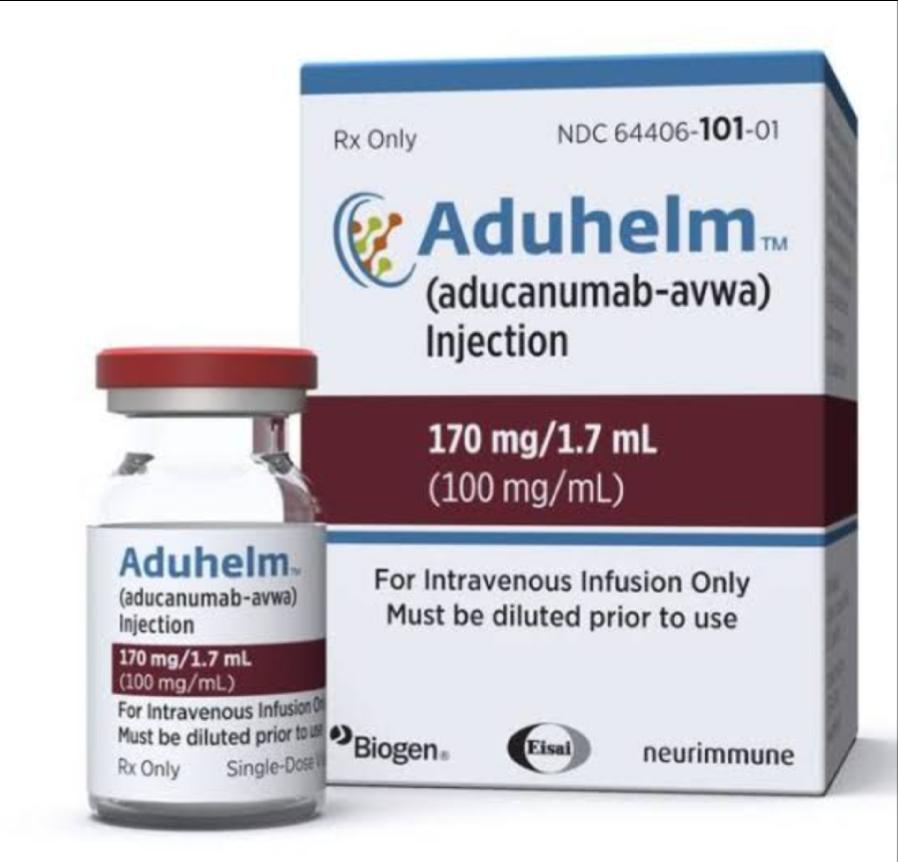Summary –
In mid-January, the Centers for Medicare & Medicaid Services (CMS) issued a draft national coverage decision for Biogen’s Alzheimer’s drug Aduhelm (aducanumab). It’s a controversial drug and CMS’s proposed coverage was controversial as well. Biogen has now made its official comment during the open commenting period on the draft.
Insurance companies have been reluctant to pay for the drug, largely waiting for CMS to announce its reimbursement plan. Originally the drug had a $56,000 per year per patient price tag, but uptake was slow, so Biogen cut the price nearly in half.

Originally the drug had a $56,000 per year per patient price tag, but uptake was slow, so Biogen cut the price nearly in half.
In their draft guidance, CMS said it would only cover the cost of Biogen’s Aduhelm and any required scans “if they are enrolled in qualifying clinical trials.” Those trials would need to “demonstrate a clinically meaningful benefit in cognition and function.”
Perhaps even more damning, the guidance applied to any drugs in that class, a real blow to any other company working on amyloid-clearing drugs. Already, this has had an impact — Eli Lilly said in its 2021 annual report that it would delay the development of its own amyloid-clearing medicine, donanemab, as a response to the CMS draft guidance.
In something of a surprise move, 47 House Republicans signed a letter against the draft coverage determination, arguing that CMS was proposing to restrict access to a drug that has “already been approved by the FDA as safe and effective” and that the agency seemed to be questioning FDA’s “expertise and authority.”
Stakeholders have issued formal comments ranging from support to condemnation. About a dozen Alzheimer’s physicians at Vanderbilt University Medical Center wrote, in part, “We write in support of Medicare coverage of aducanumab for symptomatic patients with confirmed amyloid beta in the brain. Failure to do so would be to deny patients and their doctors a reasonable and necessary option to manage a devasting disease.”
In contrast, Dr. Rhonda Berney, a practicing geriatrician at Wet County Health Centers, recommended against approving “any medications in this class, including aducanumab until such medication is shown to meaningfully slow or arrest progression of Alzheimer’s disease using clinical tools. Many research tools can show statistically significant findings that do not translate into clinically meaningful change.”
In Biogen’s comment, they reiterated that Aduhelm was the first approval in almost twenty years for a new Alzheimer’s drug and that it “provides a first-ever option to treat the underlying pathology of this disease.” Then they got down to business, proposing a three-point approach to real-world evidence generation that would complement instead of duplicate existing randomized controlled clinical trials and answer CMS’s remaining questions.
#1. “A focused registry, such as the International Collaboration for Real-World Evidence in Alzheimer’s Disease (ICARE AD) to measure real-world outcomes.”
#2. “A novel Alzheimer’s Disease Clinical Data Research Network (CDRN), modeled on approaches from other diseases like MS and oncology to allow for broad data-sharing and comparative analyses.”
#3. “Prospective studies of Medicare claims, to better understand utilization patterns (including demographic and geographic differences).”
Having proposed a plan, they then argued with CMS’s conclusions, noting, among other things, that the proposed determination “mischaracterizes existing evidence on amyloid-directed mAbs, and Aduhelm specifically, in a manner that is inconsistent with FDA’s findings and contemporary scientific understanding” and that it “contradicts the clinical expertise of the FDA and sets an inappropriate precedent that would delay access to future Alzheimer’s disease therapies.”
The response lays out detailed rationales for each point of their plan and provides supporting data for their arguments. They concluded, “Confining coverage to beneficiaries enrolled in RCTs will effectively deny access for the vast majority of patients with Alzheimer’s Disease to the first FDA-approved treatment for Alzheimer’s disease in 20 years and, as explained above, will not support the generation of new data beyond existing efforts. Narrow and complex coverage requirements that do not take into consideration a rapidly evolving clinical landscape could have the potential to stifle innovation and inappropriately limit access for beneficiaries living with Alzheimer’s disease today and in the future.”
For more Information: Sign in Websites for Agrochemical & Pharmaceutical Databases:
Website : https://www.chemrobotics.com/ (Agrochemical Databases)
Website : https://chemroboticspharma.com/ (Pharmaceutical Databases)


